- Author Jason Gerald gerald@how-what-advice.com.
- Public 2024-01-19 22:11.
- Last modified 2025-01-23 12:04.
Due to the hormonal changes they go through, teens are more prone to breakouts than adults. Therefore, many teenagers are worried about the appearance of their skin. Skin care and simple lifestyle changes can help make your skin look better.
Step
Part 1 of 2: Caring for the Skin
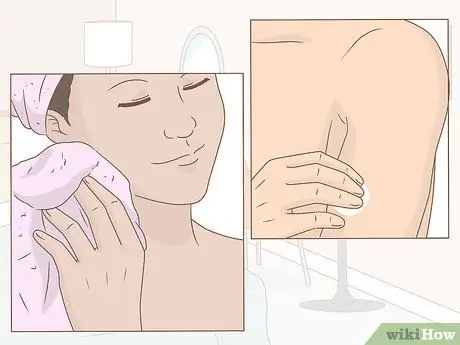
Step 1. Treat skin gently
The key to healthy skin is good care. Treat your skin gently. That way, it can look better and the risk of skin problems will also be reduced.
- Limit the time you spend showering or bathing. Skin that is exposed to water too often can dry out and become damaged. Instead of hot water, try to take a warm shower.
- Avoid harsh soaps. Highly acidic soaps and detergents can dry out the skin and remove the oil. Use a cleanser that is mild and doesn't contain a lot of additives and chemicals.
- After bathing, pat the skin dry with a towel. This will keep the skin moisturised. Rubbing can make the skin dry and irritated.
- Apply moisturizer. Use and apply a light, unscented moisturizer every day after bathing and exercising, before going to bed if the weather is dry or cold, or if your skin tends to dry out. Choose products that contain SPF to protect your skin from the sun.
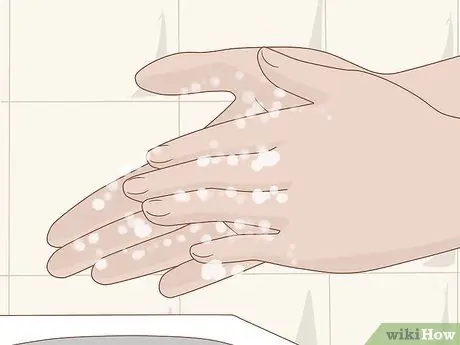
Step 2. Wash your hands regularly
Keeping your hands clean will help your skin look better. Acne can appear if the face is touched with hands that contain bacteria.
- Wash hands with clean water and soap. Rub hands for about 20 seconds until foamy. To count the time, you can also hum "Happy Birthday" twice. Be sure to wash between your fingers, under your nails, and the backs of your hands.
- Rinse your hands with clean running water and then dry them with a towel.
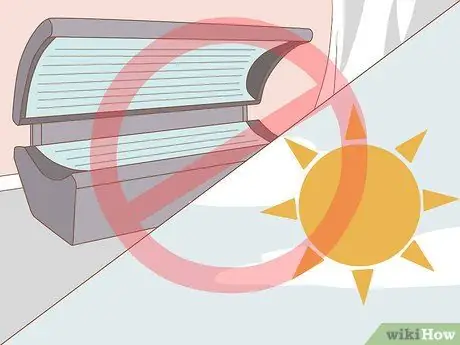
Step 3. Don't tan
Tanning machines are dangerous for the skin, especially for the fragile teenage skin. Some regions and countries even prohibit the use of tanning machines for people under the age of 18. Sunbathing in natural sunlight can also increase the risk of various skin diseases, including melanoma (skin cancer) and premature aging. If you want to make your skin look tan, consider using a spray tan or tinted moisturizer.
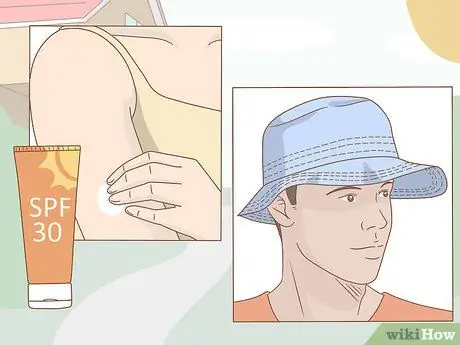
Step 4. Protect the body from the sun
Be sure to protect your skin when outdoors and in the sun. Skin that is too often exposed to the sun is at risk of developing cancer and over time can suffer from other skin problems.
- Use sunscreen. Look for products that contain at least SPF 30. If you're going out in the sun all day, reapply sunscreen every two hours.
- The sun's most damaging effects are between 10 a.m. and 2 p.m. During this time, find shelter and wear protective clothing such as hats, scarves, and long-sleeved clothing.
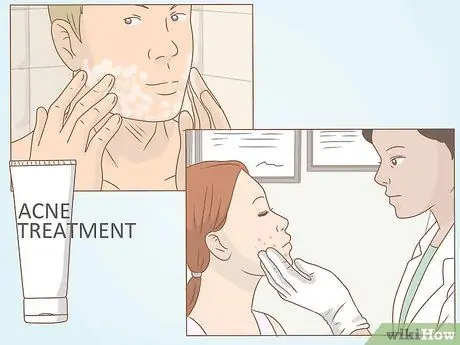
Step 5. Get rid of pimples
If your skin is prone to breakouts, find out how to treat it effectively. You may have to experiment with several acne products before finding the most effective one.
- When considering treatment options, talk to your doctor or dermatologist. Your doctor or dermatologist can recommend over-the-counter creams or prescription medications depending on your skin type and medical history. You may have to try several products first before finding the type that works.
- Certain lifestyle changes can also help with acne. Try to use less makeup when your skin has breakouts so it doesn't last longer. Always clean your face after exercising. Try to keep your hair, hats, or clothes away from your face, as this can trigger acne breakouts. Pimples should also not be squeezed because it will cause scars.
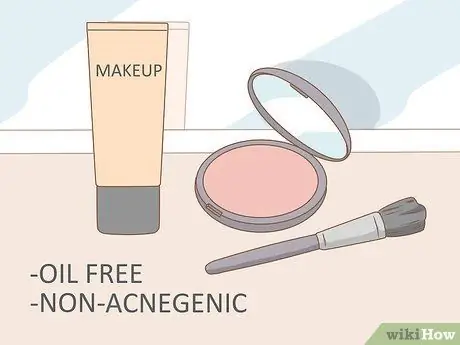
Step 6. Choose the right makeup products
Look for makeup products that are light, oil-free, and labeled as non-comedogenic or non-acnegenic that won't cause breakouts. Mineral and water based makeup tends to be better for acne-prone skin. You also have to clean your face after a day of activities, before going to bed, or before exercising so that makeup doesn't clog pores. Wash your hands before putting on makeup and store used brushes in a clean place.
Part 2 of 2: Making Lifestyle Changes
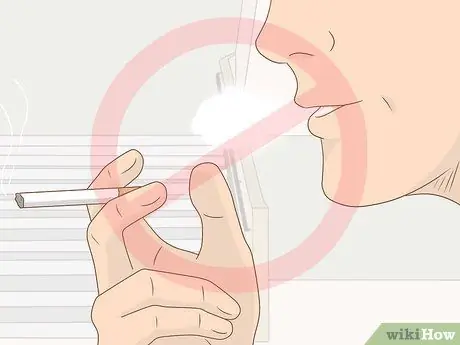
Step 1. Don't smoke
If you are an active smoker, stop the habit. Not only damaging health in general, tobacco can also cause premature aging. Talk to your parents, friends, and doctor for advice and support for quitting smoking.
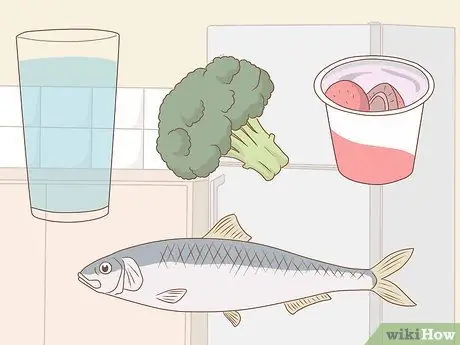
Step 2. Eat the right foods
Food can affect the overall appearance of your skin. A healthy diet can also help wounds and scars heal faster. If you want your skin to be healthier and look better, eat healthier foods.
- Foods that are high in vitamin A, vitamin C, and zinc can help make your skin look better. Foods that contain these vitamins and minerals include oranges, strawberries, tomatoes, spinach, broccoli, cabbage, cabbage, Brussels sprouts, fortified dairy products and cereals, red meat, seafood, and orange and yellow vegetables.
- Also eat healthy protein. Nuts, eggs, milk, yogurt, tofu, and foods made from soy are good sources of protein.
- Drink enough water. Many teens consume caffeinated beverages but do not drink enough water. Try to drink 9-13 glasses of water every day.
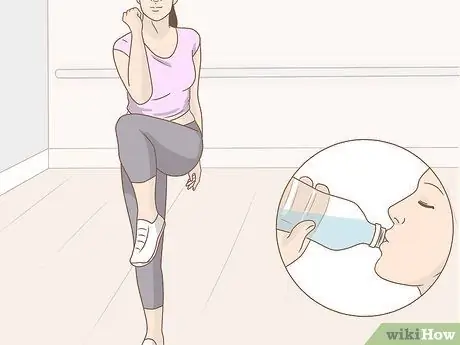
Step 3. Exercise
Exercise is good for the skin, but after that you have to clean the skin. Exercise increases blood flow to the skin's surface and makes nutrients better distributed throughout the body.
- Ideally, you should do physical activity for an hour or more a day to make your skin look better. If you don't have the time or stamina to exercise for an entire hour, try breaking it up into sessions. For example, you can exercise for half an hour in the morning and evening.
- Always drink lots of water when exercising. This can help replace fluids lost during exercise.
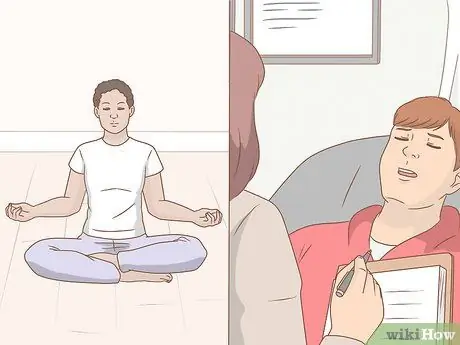
Step 4. Manage stress
Stress can affect your overall health, including your skin. If stress levels are high, acne and other skin problems can arise. To get healthy skin, manage the stress you have.
- Do yoga or meditation. They were created to keep the mind focused on the present and to reduce overall stress. Look for information about yoga or meditation classes in your area. You can also find information on guided yoga and meditation classes on the internet.
- If you're having trouble managing stress, ask your parents to schedule an appointment with a therapist. A therapist can help you find effective ways to deal with anxiety and stress. General practitioners can give referrals to therapists in the area where you live.
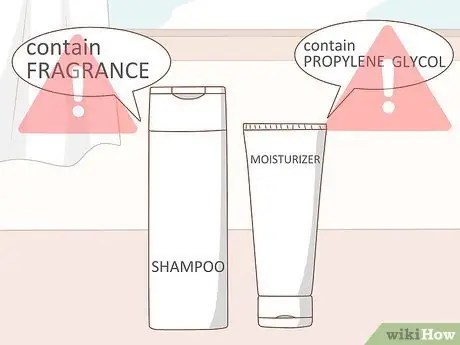
Step 5. Avoid irritating ingredients
Be aware of ingredients that can cause irritation. If you have breakouts or rashes, try to stop using skin care products, makeup, shampoos, or lotions. If there are changes afterward, the product may not be suitable for your skin. Replace the product with the appropriate product.






